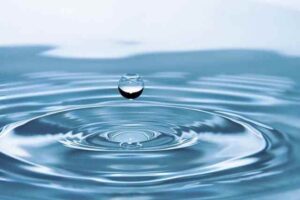What is a balanced diet, nutrients, and How it works?
In This Article, You get a Complete Guide on What Is Balanced Diet So Let’s Get Started…

We embody products we expect square measure helpful for our readers. If you get through links on this page, we tend to might earn a little commission.
In this article you will get Macro and micronutrients, nutritional and non-nutritional components of food, food-eating disorders – apps absence (anorexia nervosa) and appendicitis (extreme apps) or bulimia nervosa, effects of diet on performance and weight control Eating for – Healthy weight, dieting or the risk of snacks, food intolerance, food myth, and sports nutrition. Role
Meaning of Balance Diet
The meaning of Balanced Diet: Balanced diet refers to the foods included in the food that can supply all the necessary nutrients for the growth, development, and maintenance of the body. That is a diet in which all the nutrients are in proper quantity and in proper proportion and they fulfill the daily needs of the body is called a balanced diet. In other words, A diet prepared by blending the appropriate proportion of different foods, which provides all the nutritious ingredients according to the minimum requirements of the body, is called a balanced diet.
A diet is said to be balanced when all the nutrients in it are in proper quantity and proportion. Food should be disinfected and easily digested
Dietary Requirements
We know that not every person’s dietary requirements are the same. It varies according to age, sex, occupation, and climate, etc. of the person. Therefore, it would not be wrong to say that “a balanced diet is a diet or food from which all the essential elements are obtained in appropriate quantity as per the age, sex, body, occupation and environmental condition of the person.” Nutrition)

Meaning Of Nutrition
“The use of various nutrients present in the food for physical activities and to meet physical needs is called nutrition. “We all know that the food we eat nourishes our body and keeps the body healthy. Food goes through various processes in our body. Such as – digestion, absorption, and then different parts of the body It is used by blood circulation. It is expelled by the body in the form of feces. In simple words, working food is called nutrition. Scientifically If told – Nutrition is a process in which food or nutrients are ingested and digested. In this process, the nutritious substances present in the food are absorbed and distributed to other organs or tissues for use. The food is taken by the person and the nutrients and the quantity present in that food determine the nutrition level of the person.
Macro Nutrients

Macro Nutrients Nutrients that form the main part of a person’s diet, ie, taken in large quantities are called macronutrients. The main function of these nutrients is to provide energy, growth of the body, and repair of fibers. Carbohydrates, protein, fat, and water are examples of macronutrients. The following is a brief description of various macronutrients:
1. Carbohydrates:
Carbohydrates/carbs are the most important elements that provide energy to the body for various functions. In other words – Carbohydrates act as fuel in our body. Carbohydrates are chemical compounds that are formed by mixing carbon, hydrogen, and oxygen. All carbohydrates have carbon, hydrogen, and oxygen atoms in the ratio of 1: 2: 1. A combination of these three elements produces sugar units, which are the basic units of carbohydrates. 1 gram of carbohydrate provides 4.1 kcal of energy to the body. Carbohydrates are of two types
(a) Simple carbohydrates:
In this simplest form of carbohydrates, there is only one unit of sugars. Glucose, fructose, sucrose, maltose, and lactose are examples of simple carbohydrates. These types of carbohydrates are sweet in taste and soluble in water. They do not require any kind of digestion before absorption in our body and after eating it Is immediately absorbed into the blood. For this reason, patients are given glucose to get energy. Common carbohydrates are found in grains, juicy fruits, sugarcane, chunkandar, pineapple, and carrots, etc.
(b) Complex carbohydrates:
Starch, doctrines, glycogen, and cellulose, etc. are called complex carbohydrates. These types of carbohydrates do not have a sweet taste and are insoluble in water. Complex carbohydrates are found in potatoes, turnips, corn, wheat, and rice, etc. 2. Protein: Protein is probably the most important nutrient for the body. The unit that makes up the human body is called a cell. These microscopic cells are made up of protoplasm. These substances are proteins, without which the creation of the human body without cells and cells is impossible. In Greek, it is called protease (first place).
(b) Complex carbohydrates:
Starch, doctrines, glycogen, and cellulose, etc. are called complex carbohydrates. These types of carbohydrates do not have a sweet taste and are insoluble in water. Complex carbohydrates are found in potatoes, turnips, corn, wheat, and rice, etc.
(b) Complex carbohydrates:
Starch, doctrines, glycogen, and cellulose, etc. are called complex carbohydrates. These types of carbohydrates do not have a sweet taste and are insoluble in water. Complex carbohydrates are found in potatoes, turnips, corn, wheat, and rice, etc.
What is protein, How it’s work?

Protein:
Protein is probably the most important nutrient for the body. The unit that makes up the human body is called a cell. These microscopic cells are made up of protoplasm. These substances are proteins, without which the creation of the human body without cells and cells is impossible. In Greek, it is called protease (first place). Based on this word, this element is named protein. Protein is also called a bodybuilding nutrient. Protein molecules are made up of hundreds of types of chemical units called amino acids.
These are 23 in total, of which 8 are those which cannot be produced by our body. Therefore, these are called essential amino acids and they can be obtained only by food, the rest of our amino acids are made by our body itself. 1 gram of protein yields 4.1 kcal.
Functions of protein
Functions of Protein (a) Protein is responsible for the formation of blood in the body, hemoglobin in the blood, muscles, nails, skin, hair, and internal organs. (b) Protein creates new tissues and repairs broken tissues. (c) Protein regulates the balance of water and acids in the body. (d) Protein carries oxygen and nutrients to the cells and produces antibodies.
Problems due to Lack or Excess of Protein
(a) Excessive use of cannibalistic protein in the diet can cause heart disease, osteoporosis, stroke, and kidney stones. Anemia can also occur in women. (b) Lack of protein in the diet of children causes diseases like marasmus and kwashiorkor. The body needs only 0.36 grams of protein per pound of ideal body weight.
What is Fats, How it’s work?

3. Fats:
Like carbohydrates and protein, fat is also an important part of our diet. Fat is made up of a combination of carbon, oxygen, and hydrogen atoms (76, 12, and 12 percent, respectively). About 9.1 kcal is obtained from 1 gram of fat. Fats are of the following
(a) Saturated fats:
Saturated fats contain saturated fatty acids. They are found in simple bonds due to which they do not have the ability to make hydrogen. It is also called animal fat. Excessive intake of saturated fat increases obesity and cholesterol levels in the blood, which increases the chances of heart disease. This type of fat is also found in fast-foods, bakery products, ice cream, cheese, butter, and ghee, etc.
(b) Unsaturated fats:
Unsaturated fats can have two or more bonds and have the ability to absorb hydrogen. They occur in liquid form at ordinary heat. There are also some unsaturated fatty acids that are not manufactured in the body. It is necessary to take them by diet for good health and growth of the body. They are also called essential fatty acids. These are found in various edible oils such as groundnut, sesame, mustard. In addition to the above fat, there is also mono-saturated fat and poly-unsaturated fat which is somewhat better than blood. Helps reduce cholesterol levels. Polyunsaturated fats,
Functions of Fats
(a) Fats are extremely important for many body functions.
(b) Fat regulates body temperature and provides protection to soft organs.
(e) Fat also helps in the production of hormones.
(d) It protects the skin from becoming rough and also protects the body from the external effects of heat and cold.
(e) The right amount of fat also maintains the beauty of the body.
What is Water, How it’s work?

Water
Water is a compound formed by mixing hydrogen and oxygen in the ratio of 2: 1 respectively. Various internal activities of our body take place in the liquid medium itself, so the macro of water is placed in the category of nutrients. However, some scholars consider it as an ‘essential element’ rather than a ‘nutritive element’.
Functions of Water
(a) 90% of our blood is water.
(b) Water helps in transporting nutrients to the body cells.
(c) It plays an important role in the removal of waste materials from the body.
(d) It regulates body temperature.
(e) It is also essential for the internal chemical actions of the body. In this, it is very important for the metabolism of the body.
(f) Micro Nutrients: Micronutrients are nutrients that are needed in a large amount, but they are extremely essential for the body to function normally. The main function of these nutrients is to provide various chemical processes in the body and help in the functioning of the body. Kaifeng and vitamin micronutrients.
Minerals:
Minerals: Mineral elements are found in very small amounts in our bodies. About 4% of our total body weight is made up of minerals. Nevertheless, they are essential for various physical activities. The square cannot analyze them in the body, so it is very important to take them into your balanced diet.








